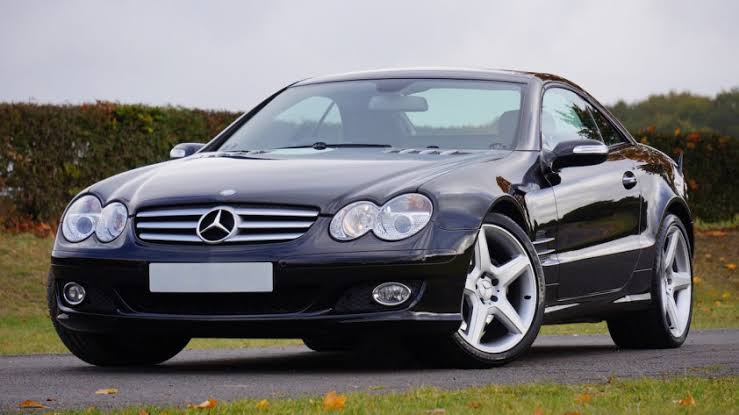There’s no denying that for certain lifestyles, a car is an absolute necessity. Growing families, for instance, experience a lot of convenience from having a car — ditto with professionals that do a lot of fieldwork, or live far away from their workplace.
Likewise, it is much easier to handle emergencies when you have a car. If your child gets sick in the middle of the night, you can quickly drive her to the nearest medical facility. Or, in the event of a natural disaster and you need to vacate your current location, you’ll be able to do so faster with a car.
Indeed, a vehicle that is entirely yours has a substantial contribution to your quality of life. This is why, for many, the high cost of a vehicle is completely worth it. However, it’s important to note that the cost of owning a car is not just the initial sale price. There are a lot of other expenses attached to it.
Therefore, before deciding to buy a car, it is a must to study where additional expenses come from and determine if you have the financial capability to keep up with them. Rounded up below are the different cost-connected aspects of car ownership.
Contents
1. Sale price
This is the first thing that you need to consider when seriously considering buying a car. Naturally, you want the sale price to match your budget. Thankfully, there are great deals on cars nowadays. Plus, most Asian car manufacturers have their line of economy cars to fit the smaller budgets a lot of buyers have.
It is worth mentioning that the pre-owned car industry is growing, and you can get top-class certified pre-owned cars at more affordable prices. From luxury ones to economy cars, top dealerships have them all to cater to an economically diverse market.
2. Fuel
Despite the rising popularity of electric vehicles that do not make use of gas, most cars on the roads these days still make use of fuel. The cost of fuel in the MENA region is cheap, but not so in the other parts of the globe.
For financially-challenged people, the fuel-efficiency of a car is something to factor in when making a buying decision. It can impact your family budget, especially if the vehicle will be used often. Therefore, it’s crucial to do the math and compare the fuel economy of different cars within your price range before choosing the one to buy.
3. Upkeep
The maintenance of a car can set you back by a considerable amount of money. Changing oil, battery replacements, general maintenance, and repair can build up to a huge sum. Some folks avoid upkeep and only bring their vehicle to service centers when there’s something wrong. However, doing this can actually lead to much bigger expenses.
If you would choose to buy a new vehicle, there’s a big chance that you can save significantly on maintenance because you have a brand new car. Plus, free maintenance for a year can come in the promotional deal for the vehicle. Also, if you would only use the dealership’s own service center, you may only have to pay 50 percent of the typical cost of service fees.
But, if you would choose to buy a pre-owned vehicle, you may not get the benefit of a year’s worth of free maintenance services. However, it may provide you with the chance to find good and trustworthy service centers. Their service rates may be around the discounted price of dealerships’ services, but the even better thing is, you can benefit from their affordable services beyond a specific period.
4. Insurance
Car insurance is another costly aspect of owning a car. For those who can afford it; they have the peace of mind that should something happen to or involving the vehicle, they do not have to pay for repairs or injury claims straight out of their own pockets.
It’s crucial to point out as well that the upfront cost of insurance is way lower than the actual financial coverage it offers. Therefore, as pricey as it is, most car owners deem it a wise investment.
However, you do not have to get car insurance if you do not want to. After all, a large percentage of auto insurance owners say that they do not get to use the program at all before they need to buy a new one. The thing is, if you want to be thoroughly prepared for any car-related expense, indeed, it’s better to have car insurance and not need it than to need it and not have it.
5. Car registration and licenses
These are other expenses that come with owning a vehicle. You have to renew them regularly, and they always come with a price. For as long as you have a car that you use, you will need to take the time out to register the vehicle and renew your license and set aside a budget for these.
The expenses of car ownership require adequate preparation. Hopefully, knowing the different aspects of owning a vehicle that also require money will not only help you choose the best vehicle to buy but also allow you to budget better. This way, your car would be a complete asset instead of a liability to your life.
AUTHOR BIO
Mahesh Rohra is the Managing Director of certified Pre-Owned Multi Brand Car Sales & Service. AWR Strategic Ventures, Part of the AW Rostamani Automotive Group, a trailblazer in the automotive fraternity with a legacy of over 50 years. AUTOTRUST is the strategic arm business vertical through which the group had diversified into certified Multibrand Car Sales and Aftersales Service Center Network, offering a one stop shop solution for all automotive requirements. AUTOTRUST offers solutions to buy & sell car, Agency standard Car Service and Maintenance, car rentals and much more.

Leave a Reply